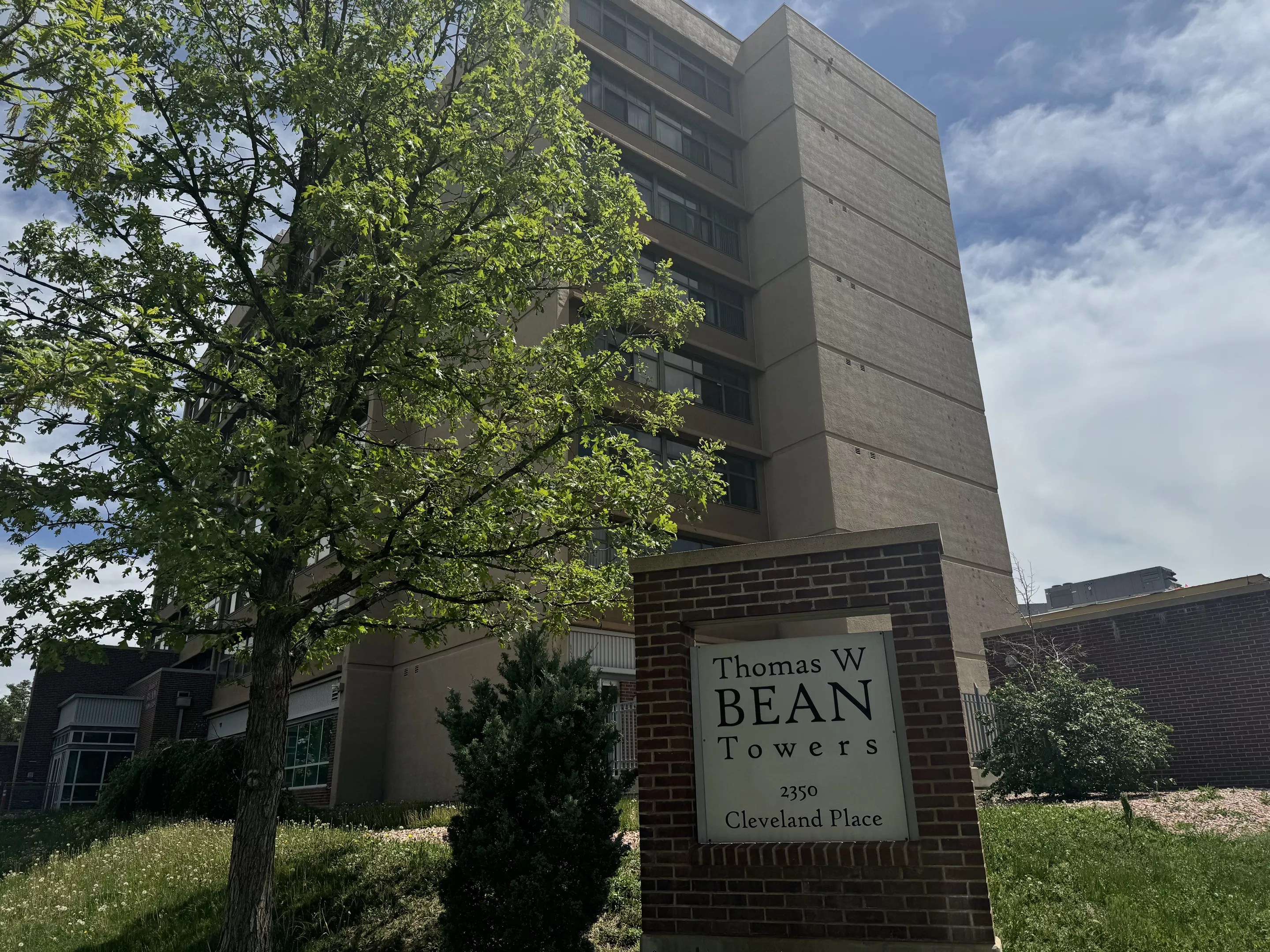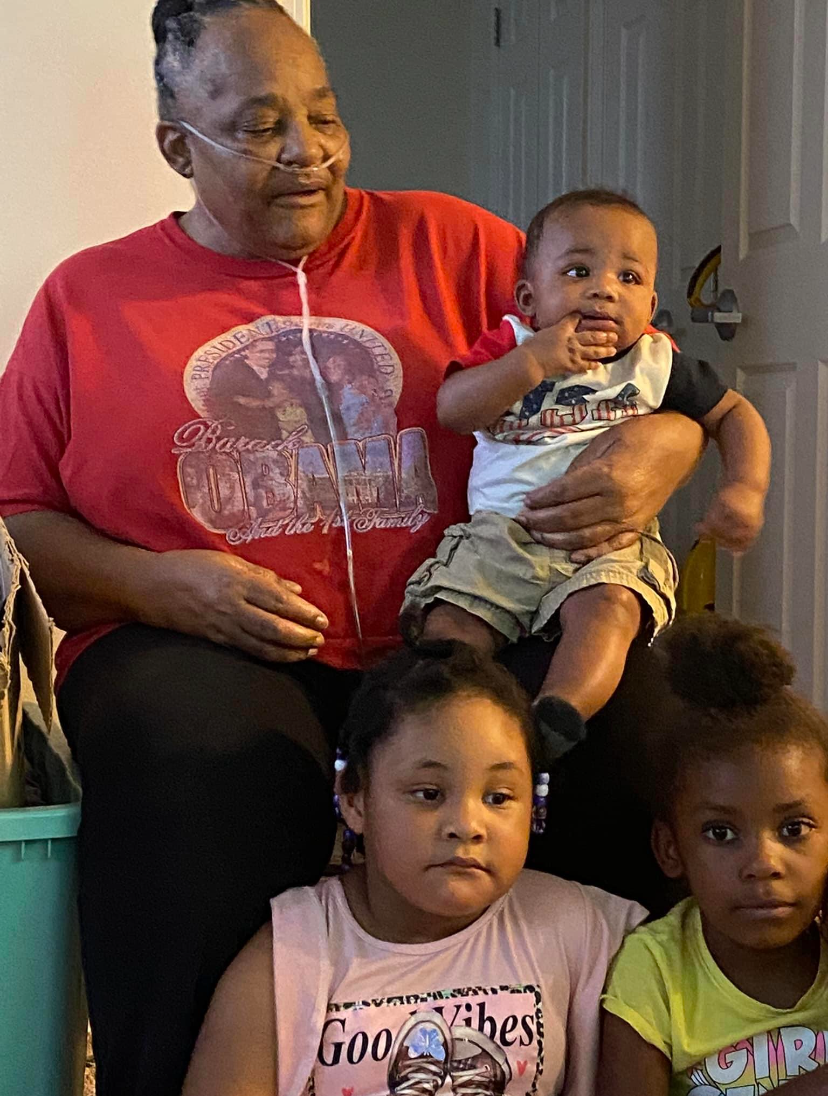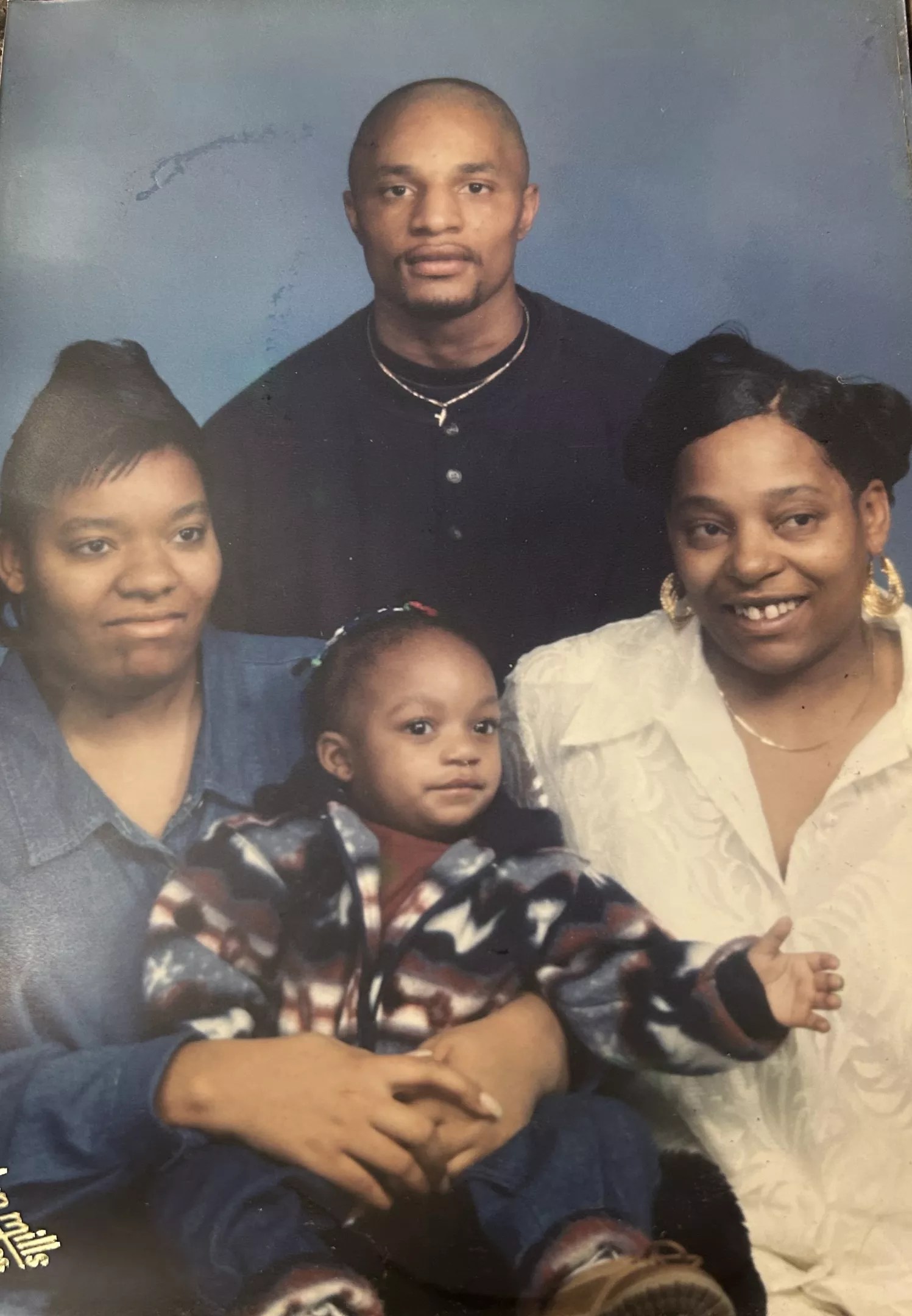
Catie Cheshire

Audio By Carbonatix
Shirlyne Johnson’s children describe her as a funny, loving person who enjoyed cooking soul food and breakfast for her family.
“Her thing was cooking,” says her daughter, Latrisse Johnson. “And she loved her grandbabies.”
Both Latrisse and her brother, Shawn Pope, have children who Johnson enjoyed spending time with, including Latrisse’s two grandchildren, who would regularly visit Johnson at the Thomas Bean Towers in Denver, where she lived – and died in unbearable temperatures, according to her family.
Thomas Bean Towers is a 189-unit public housing building for the elderly and those with disabilities managed by the Denver Housing Authority. Pope and Latrisse didn’t like the condition of the building, finding it run down, dirty and hot.
Still, her children were shocked after Pope discovered their mother dead in her Thomas Bean unit in May 2023. Johnson had passed away in her apartment, which measured at over 120 degrees at the time of her death, according to the Denver Office of the Medical Examiner. The OME determined that her death was due to multiple contributing factors, all of which were “complicated by exposure to an increased environmental temperature.”
At the time of her death, Johnson’s HVAC system was malfunctioning, pumping hot air into her unit. She’d told DHA building management about the problem on May 19. By May 23, the day she died, no one had visited her unit to examine the problem, according to the lawsuit Latrisse and Pope have filed in Arapahoe County District Court.
Johnson’s children are suing the Denver Housing Authority, the owner of the building and several employees who worked there at the time for wrongful death, asking for a trial and damages for funeral expenses as well as pain and suffering related to their mother’s death. According to their lawsuit, Johnson’s death could have been avoided if DHA employees had followed proper maintenance protocols.
Located at 2350 Cleveland Place, the Thomas Bean Towers are owned by a company called Thomas Bean Towers LP, but the land is owned by DHA, which also manages the building. Both entities are named in the lawsuit.

Shirlyne Johnson with her grandchildren and great grandchildren.
Latrisse Johnson
The parties participated in a two-day hearing between April 23 and 30 so a judge could determine if the claims can be brought under the Colorado Governmental Immunity Act, a law meant to protect taxpayers from excessive payments that could result if the government had the same liability as private companies.
A quasi-municipal corporation, DHA is a hybrid between a government entity and a regular company, acting for government purposes but without the full breadth of government power and with more independence than a government department.
According to Latrisse and Pope’s lawyer, Damian Stone, there is an exception to government immunity for dangerous conditions in public buildings. The lawsuit goes on to argue that the Thomas Bean Towers are “operated and maintained in furtherance of the governmental objective of low-cost housing for the benefit of the public and community at large” and are “open to the members of the public who use it for its intended purpose.”
On April 23, Pope and Latrisse both gave emotional testimony about the days leading up to their mother’s death.
“Just reliving everything that happened, it was difficult,” Latrisse tells Westword. “But we made it through.”
According to the lawsuit, the HVAC system in Johnson’s unit had established issues, which led to the heat pump for her unit being replaced in August 2022 with refurbished equipment. The refurbished pump broke on May 9, 2023, pumping hot air into Shirlyne’s apartment despite the room’s already-hot temperature, according to the lawsuit. At that time, DHA performed temporary repairs.
But the heat pump malfunctioned again, uncontrollably blowing hot air into the apartment starting on May 19. Johnson reported the problem to the front desk, but no one came to make any repairs, her family’s lawsuit notes. May 19, 2023, was a Friday, and DHA employees testified in the recent hearing that no management was on site on weekends, leading to the lack of response.
But the lawsuit argues that Johnson’s situation was an emergency and should not have been delayed merely because it occurred at an inconvenient time.
Denver housing code requires landlords to maintain equipment supplied by the property at the time a lease is signed. Although Denver law does not require air conditioning, it is the landlord’s obligation to complete repairs on utilities that are present when someone moves in.
Further, the lawsuit contends, because heat pumps disperse both hot and cool air, Denver’s rules regarding heating should apply in this case, adding that a unit’s heating system should be “capable of safely and adequately heating all habitable rooms,” the lawsuit reads.
Denver housing regulations require maintaining a temperature of 70 degrees Fahrenheit when it is negative 5 degrees outside. The lawsuit argues that if a heating system cannot be turned off when a unit is well over 70 degrees, that also constitutes a heating system not being in “sound condition.”
Therefore, the lawsuit continues, when Johnson said she could not stop her heat pump from blowing hot air into her apartment, DHA property managers should have reported the situation immediately. Instead, no work order was created for the issue until three days later on Monday, May 22, 2023.
Pope, who grew close with Johnson after suffering a traumatic brain injury as a teenager, talked to his mom every day before her death, he testified. In the days leading up to his mom’s death, he said his mother told him she was tired, hot, unable to sleep and had to go out into the hallway to breathe.
Johnson had chronic obstructive pulmonary disease (COPD) and used a scooter and oxygen tank, so leaving her apartment frequently for relief was especially difficult, according to her children.
Pope testified that his mom spent days waiting for someone to address the problem. Even when a maintenance request was finally submitted, there was no emergency label.
“If Defendants had submitted the maintenance requests as ‘urgent’ or an ’emergency,’ the HVAC contractor had a policy to be onsite the same day or within two hours,” the lawsuit reads. “Further, if Defendants would have just addressed the dangerous condition promptly after Shirlyne Johnson gave notice on May 19, 2023, Defendants could have addressed the dangerous condition by May 22, 2023 at the latest.”
On the stand, DHA employees confirmed there were ways the heat pump could have been turned off, either by flipping off a fuse in the HVAC closet or the breaker in Johnson’s unit. In court, Pope said he became worried when he hadn’t heard from his mother by the evening of May 23. After going to Thomas Bean Towers and convincing a maintenance worker to let them in, he and his wife found Johnson dead in her apartment.

Shirlyne Johnson (right) with her children and one of her grandchildren.
Latrisse Johnson
“It was a really bad experience,” Pope tells Westword, adding that no one should have to see a loved one that way.
According to the medical examiner, the temperature in Johnson’s unit was between 123 and 127 degrees and her body temperature was 111 degrees at her time of death. Latrisse, who was out of town when her mother died, says DHA never contacted her regarding the unit’s heating issues. She says she could not see her mother at the funeral because Johnson was disfigured to the point that an open casket was deemed unfitting, and the autopsy report convinced her to take legal action.
In an April 2024 investigation report, the Denver Department of Public Health and Environment found DHA did not comply with the agency’s established work order procedure or respond effectively to Johnson’s complaint about her HVAC system.
Additionally, the DDPHE report found that DHA did not conduct regular preventive maintenance for ventilation units. Another resident, Diann Cooper Williams, had died of hyperthermia at Thomas Bean Powers in 2019 after a heating system malfunctioned similarly to Johnson’s, according to the DDPHE report. The report added that DHA did not respond appropriately to Williams’s death, failing to responsively change their processes to “prevent similar harm in the future.”
The health department recommended that DHA enlist an independent consultant to “revise their work order response policies related to faulty ventilation and heat-producing equipment to address inconsistencies and prevent accidents of this nature from happening again.”
According to DDPHE and the lawsuit, DHA did not offer any alternative accommodation to Johnson despite the issues in her unit. Her family believes if DHA had allowed her to move units for a few days, her death could have been avoided.
The siblings say they’re suing in part because they don’t want to see this happen to anyone else. either.
“My mother didn’t have to go this way,” Latrisse said in court. “I need accountability for her death, and procedures need to be changed.”
According to Pope and Latrisse, their mom would always speak her mind and be forceful over what she needed. They believe that if this could happen to her, it could happen to other residents who may not be as brave or able to advocate for themselves.
“It’s not a good place for an old person over there, because they don’t have a voice,” Pope says of Thomas Bean Towers. “They live in bad conditions. You tell the maintenance man, tell whoever – the front desk – they just overlook them. I think that’s wrong, because everybody gets old.”
Latrisse says she believes there should be a stronger timeframe for maintenance and a policy that tenants have to be relocated if a problem in their unit hurts their safety; Denver City Council will vote on a change to allow the DDPHE to require landlords to provide alternative housing on May 19.
DHA declined to comment on the lawsuit, citing open legal matters.
An Arapahoe County judge will issue a ruling on the government immunity issue in the coming months. If approved, all sides will prepare for a full trial within a year of the decision.